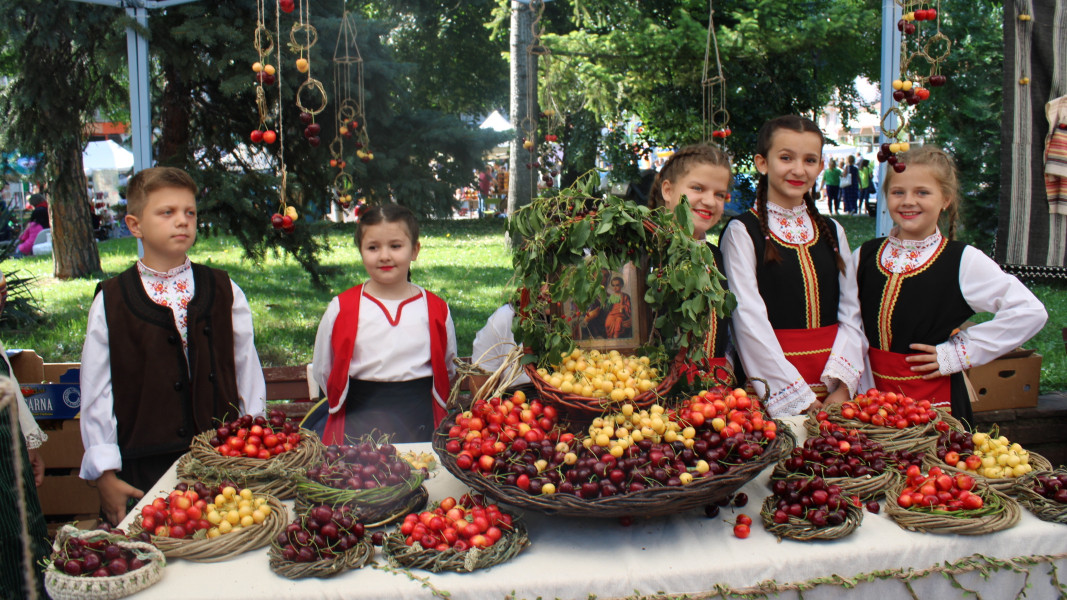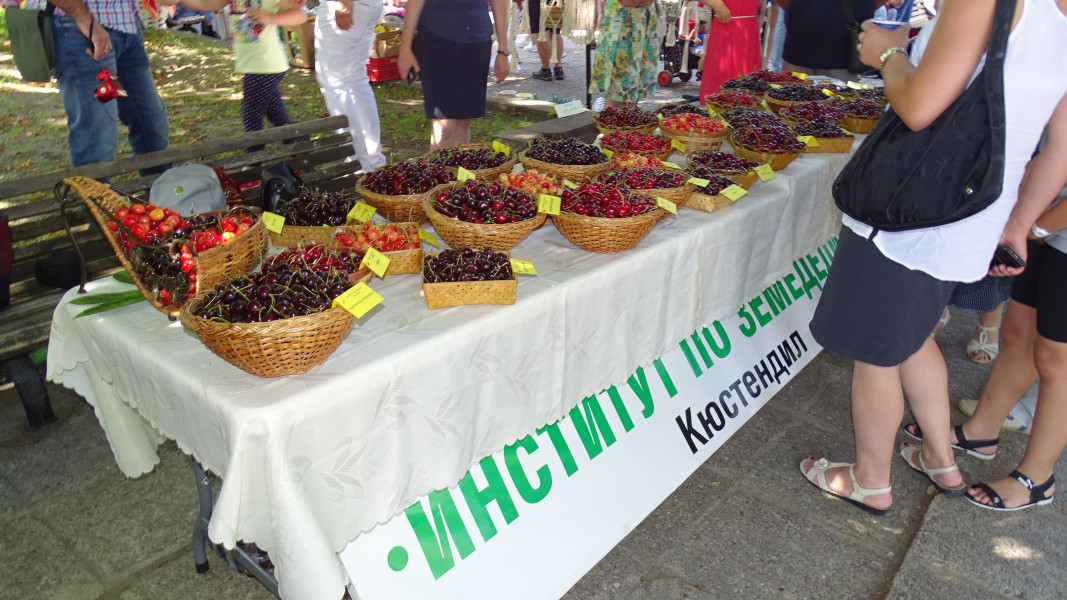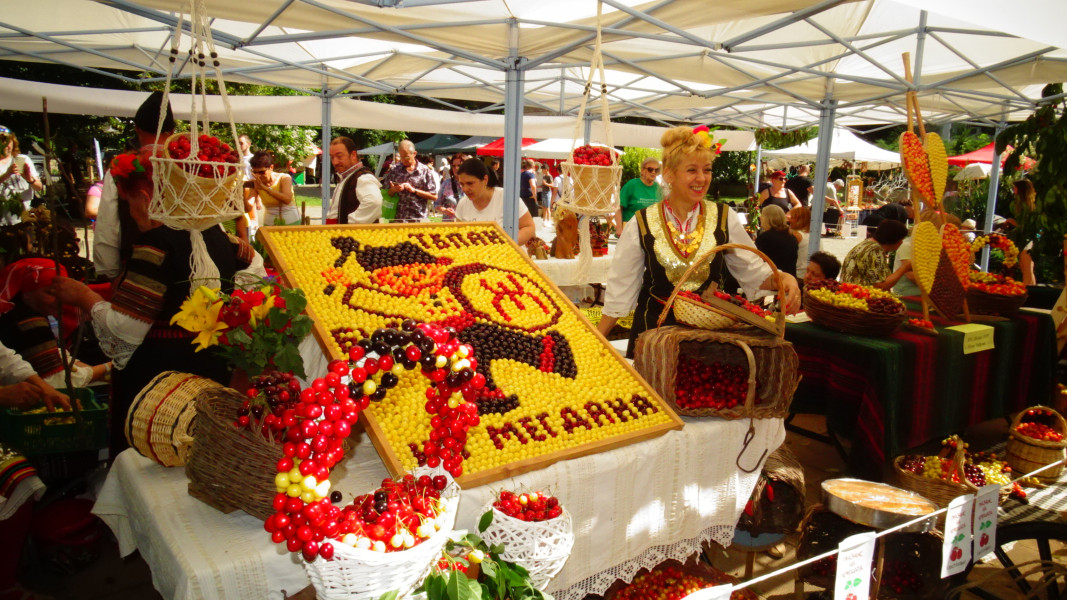At the end of June, cherries ripen in Bulgaria and everyone knows that the sweetest ones are the cherries from the region of Kyustendil, known as the Orchard of Bulgaria. The Cherry Festival is also held there every year. In fact, it is a continuation of the First National Fruit Growing Exhibition held in Kyustendil way back in 1896. This year, on June 23, 24 and 25th, cherry growers from all over the country will gather in Kyustendil, as the celebrations will be accompanied by a rich cultural program on the central square of the city.

The traditions
Many tourists are attracted by the market of cherries, with the participation of local farmers. Traders and craftsmen from all over the country present their products and guests can participate in competitive games dedicated to cherries.

Cherries, yield and growers' worries
There are about 3 thousand acres of cherry orchards in the region of Kyustendil. About 5,000 tons of fruit are produced but this year the yield is lower because of the heavy rains in the spring. This is also the reason for the high retail price of cherries - between 2.5 and 3.5 euros per kilogram depending on the quality.
Fruit growers from the region and the country complain that their costs have greatly risen. "Ammonium nitrate last year was 15 euros and now it costs 65 euros a bag. Herbicides and other products have become 50% more expensive, while inflation also affects harvesting and it is increasingly difficult to find seasonal workers," farmers say. Due to the problems with selling the cherries in recent years, many farmers lost interest in cherries and started selling their orchards. Others focused on growing plums, which also thrive in Kyustendil's gardens. Therefore, agronomists from the Institute of Agriculture in the city expect a decline of the areas with cherry trees, and hence the yields.

"The cherry harvest this year went well; there was a serious load of fruit on the cherry trees, but there were problems as a result of the heavy rains," Prof. Iliana Krishkova, Director of the Institute of Agriculture in Kyustendil says and adds:
"We have not had such a year for a long time, with 3 months of rain every day, which led to massive cracking of the cherries. They cannot ripen, but rot on the tree itself. This is a very serious problem for farmers, because buyers do not want cracked or damaged cherries. The price of the product will also fall. Such cherries cannot be used for direct consumption, they are only suitable for processing. There are juice factories in the area that will buy some of the harvested produce. In general, a well-kept orchard yields about 2 tons of cherries per decare, but high-quality produce can currently fall to 500 kg, which is very little. From April 1 until now, 312 liters of rain per square meter have fallen and we haven’t seen such high amounts for years. These are climatic anomalies that farmers can hardly cope with. There are products containing calcium that are harmless and when the cherries are sprayed they become more resistant to moisture. In addition, there are new varieties of cherries. Selection is aimed at finding varieties that do not crack as much, but in case of such heavy rains, even the best variety is affected,” Assoc. Professor Krishkova says and points out another problem - the lack of sufficient processing capacity.

At least 15 years are needed to create a new variety. This is the main activity of the Institute of Agriculture. The area here is extremely suitable for growing cherries, because there are specific climatic conditions which allow the fruit to accumulate the maximum amount of sugars and this way it gets a very nice taste, not found anywhere in the world, Associate Professor Iliana Krishkova says and adds:
"I have traveled a lot around the world, but there are no such cherries like those in Kyustendil anywhere else. The local cherry is a domesticated form of wild varieties that existed in the region in the past. The local people started cultivating them and this is how we gradually got to today's cherry. Every year during the Cherry Festival we show at least 100 - 120 varieties of cherries. Visitors have the opportunity to try them and get acquainted with the characteristics of different varieties, thanks to the specialists of the institute who are present at the stand. We participate in the jury evaluating the produce. We measure the cherries and choose the largest, we also give prize for the best arranged stand. The festival is very beautiful and colorful, with a rich folklore program. We expect even more tourists to come this year, as the popularity has increased and whoever came wants to come again and taste the cherries in Kyustendil."

If you are wondering how to recognize the typical cherry from Kyustendil, Associate Professor Krishkova describes it as follows: "It is hard, crunchy, the stone is easily separated and it has a characteristic ruby red juice when the cherry fruit is broken."
English: Al. Markov
Photos: BGNES-library
The Bessarabian Bulgarians are "an integral part of the Bulgarian national body, of the Bulgarian spiritual and cultural community, and they will always be, because the bond between us and them is unbreakable" - wrote the only issue of the newspaper..
Voting by force of habit. Voting with the last ounce of hope that tomorrow everything will be all right and we shall only be talking to each other about elections in four years’ time. Voting with a sense of bitterness – at politicians, at our own..
Bulgarians who gathered in front of the polling station in Norwalk, Connecticut - USA danced a traditional horo dance, we learned from Nadya Ullman, a member of the board of directors of the Bulgarian Center in New England , USA. Election day there..
The 33rd Bulgarian polar expedition is heading to Antarctica to continue its scientific research in cooperation with scientists from different countries...
The town of Elena, Veliko Tarnovo region, will welcome thousands of guests for the Feast of the Elena pork leg meat delicacy . Balkan masters will..
The tallest Ferris wheel in Bulgaria will rise above Pleven , announced regional governor Nikolay Abrashev. It will be built in a multifunctional complex..

+359 2 9336 661
